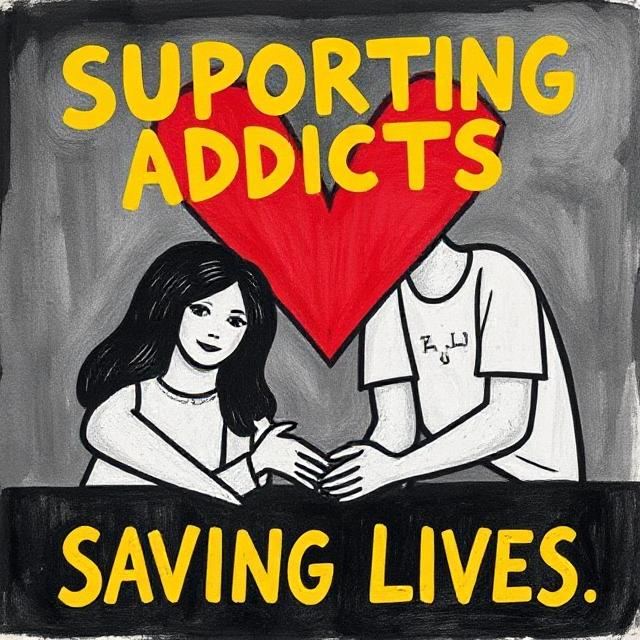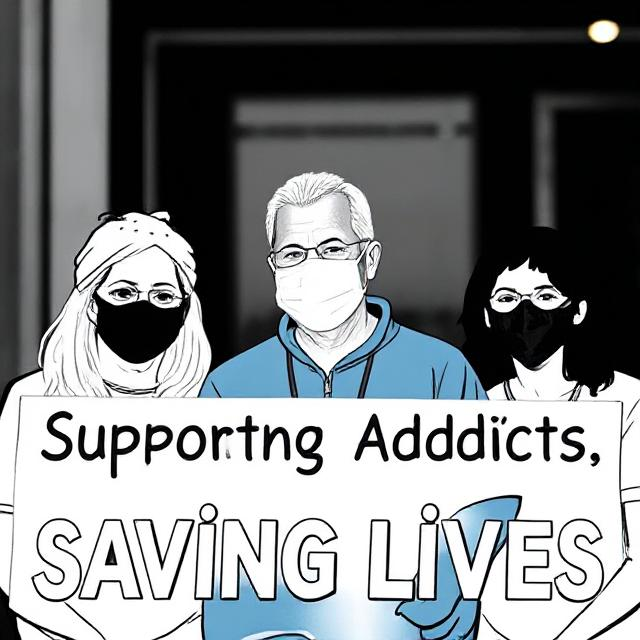Addressing drug addiction is a collective responsibility. Society must move beyond mere condemnation and actively contribute to solutions.
By: Ayaan Saroori
Drug addiction remains a pressing societal issue that requires both preventive measures for those unexposed to its dangers and rehabilitation for individuals struggling with substance dependency. In the fight against drug addiction, societal unity is crucial. However, some individuals inadvertently act as obstacles rather than allies in this battle.
The inability of many to break free from addiction underscores the urgent need for a unified approach. Are we doing enough to support those who genuinely seek recovery? Unfortunately, in our efforts to protect our families from the perils of drug abuse, we often respond harshly to addicts—many of whom are desperate for a second chance. It is imperative that, instead of ostracizing them, we provide them with the necessary resources and emotional support to reintegrate into society.
The Role of Society in Recovery
The process of de-addiction is not solely dependent on the individual seeking recovery; it also requires substantial societal backing. The involvement of families, friends, and the community at large plays a pivotal role in an addict’s journey toward sobriety. However, a recent documentary on drug addiction has shed light on a troubling mindset: many local communities actively resist the establishment of rehabilitation centers in their neighborhoods, fearing negative consequences for their youth. This opposition not only hampers recovery efforts but also reflects a lack of understanding of addiction and its complexities.
As addiction rates rise across various regions, we must adopt a more compassionate and educated approach. Without a thorough understanding of addiction, its repercussions, and available treatment options, we cannot contribute effectively to this cause. Our first step must be to acquire accurate knowledge and challenge societal stigmas associated with drug addiction.
Three Key Areas of Contribution
1. Collaboration with Government and NGOs
Efforts to combat addiction require coordinated action. Parents who are aware of their child’s addiction often hesitate to seek professional help, fearing social stigma. This reluctance can lead to fatal overdoses that could have been prevented through timely medical intervention. Encouraging parents to reach out to relevant agencies and facilitating access to rehabilitation services is a crucial first step.
2. Shifting Societal Perceptions
Society must abandon the adversarial stance it often takes toward addicts. Treating them as outcasts fosters social taboos and exacerbates their sense of alienation. Instead, individuals battling addiction need encouragement and motivation to seek treatment. A supportive environment, rather than judgment and condemnation, significantly enhances the chances of successful rehabilitation.
3. Avoiding Blame on Families
Blaming parents for their child’s addiction is counterproductive. Targeting families in personal arguments only worsens the situation, leading to parental distress and, in some cases, physical confrontations with the addicted individual. Rather than assigning blame, society should focus on creating support networks that enable parents to assist their children in overcoming addiction. An inclusive, non-judgmental approach strengthens the parent-child bond and facilitates recovery.
Parental Awareness and Support
Parents play a critical role in safeguarding their children from drug abuse. Educating themselves about addiction and fostering open communication with their children—especially adolescents—can be a game-changer. The teenage years are characterized by curiosity and experimentation, making it vital for parents to establish a trusting relationship in which children feel comfortable discussing their experiences and concerns.
Creating a non-judgmental environment where children can freely express themselves is crucial. Parents must also be attuned to behavioral changes that may indicate substance abuse. Early intervention, coupled with professional counseling and medical guidance, can significantly improve outcomes. Addiction is a complex issue, and professional expertise is often necessary to navigate the recovery process successfully. A nurturing and understanding approach from parents ensures that the child feels supported rather than alienated.
Addressing drug addiction is a collective responsibility. Society must move beyond mere condemnation and actively contribute to solutions. This includes cooperating with rehabilitation efforts, changing perceptions about addicts, and providing unwavering support to both individuals in recovery and their families.
The views expressed in this article are solely those of the author and do not necessarily reflect the opinions or views of this Magazine. The author can be reached at [email protected]
Ayaan Saroori, author of the booklet Drug: A Risk for Teens, is a freelance writer and columnist committed to raising awareness about the dangers of drug addiction and the importance of rehabilitation.


Leave a Reply